Sunni tribes have a right to stand against Maliki, but colluding with ISIS may prove to be a fatal mistake.
As Iraq teeters on the brink of civil war, the media narrative to explain the “ISIS” insurgency shows a narrow view of current events. Although the involvement of the Islamic State of Iraq and the Levant (ISIS) — the group has recently changed its name to the “Islamic State” — is only one part of the story, the role of Sunni tribes and Saddam Hussein’s former army officials has been downplayed. Sunni clerics have rebranded the insurgency into what they call a revolution; a statement that requires careful reexamination due to ISIS. Regardless of whichever perspective is adopted with regard to the insurgency, Iraq’s Sunni population will be the biggest losers no matter what the result.
The Forgotten Sunni Tribes
Iraqi Prime Minister Nouri al-Maliki has described the insurrection as one carried out by an amalgamation of al-Qaeda and Ba’athist individuals. Facts suggest, however, that ISIS and the leftovers of Saddam’s Ba’athists are not without any help. Groups of Sunni insurgents — who do not ascribe to ISIS or Ba’athist ideologies — are now cooperating to bolster to what the Association of Muslims and Scholars in Iraq (AMSI) call a popular revolution. According to AMSI, the ISIS label is a distortion as it ignores non-ISIS rebels.
The Islamic Army of Iraq and the Naqshabandi Army, headed by Saddam’s former right-hand man, Ezzat Ibrahim al-Douri, are said to be in an open alliance with ISIS. According to testimonies by residents in Mosul, ISIS’ black banners have been accompanied by portraits of Saddam and Douri. Upon entering Mosul, ISIS paraded around the city, calling on functionaries of the Saddam regime to take up their old posts. This included Azhar al-Obeidi, a former general in the Iraqi army, who has been reinstated as the ”governor” of Mosul.
Contrary to reports over how Mosul was captured, Abu Amid, a fighter from a large tribe with branches in the city, stated that the conquest was carried out with support from the old Iraqi army. He claimed it was remnants of Saddam’s revolutionary guard that advised the seizure of the airport, a TV station and the provincial seat of the government.
Refugees have expressed views that are contrary to those being commonly espoused over the ISIS offensive. Basma Mahmoud mentioned the stark changes that have emerged in Mosul since ISIS made their entrance: “We had no water, no food, but now everything is back, they [ISIS] told the people to go back to Mosul.” Omar al-Faris, from Mosul, who works for Dahuk Emergency, said people in the city welcomed ISIS because they removed checkpoints. “Before, it took two hours to get somewhere. Now the civilians are free to move. All of them are happy that the Iraqi army left.” Some refugees in Duhok’s refugee camps said they fled due to fear of government reprisals and not ISIS’ offensive.
During the so-called “awakening period,” it took a total of 25,000 active Sunni combatants and as many as 88,000 part-time and support insurgents to drive out al-Qaeda in Iraq. Despite their manpower and weapons, they still required the assistance of 50,000 American soldiers.
AMSI called on all participants of the “revolution” to treat the populations of liberated cities with sensitivity and care, including their minorities, so “these cities become a model that others will wish to emulate.” The General Military Council of the Iraqi Revolutionaries (GMCIR) also released a statement rebuking ISIS, demanding they respect the supremacy of Sunni tribes as well as the need for Iraqi unity. Reports of fighting between Sunni rebels and ISIS show that their alliance may not end happily.
The “Revolution”
Sheikh Mohammed Bashar al-Faidhi, AMSI’s spokesman, said: “A popular revolution [is occurring in Iraq] against the policy of oppression, marginalization and exclusion pursued by successive governments under the brutal occupation, including the current Maliki government.”
Calling it a revolution, however, would be premature. Although optimism over the insurgency can be understood from a Sunni perspective, careful thought must be given to ISIS’ motives. It would be naive to accept that the collaboration with Sunni tribes shows the group’s acceptance of the non-radical objectives of the GMCIR and AMSI. Both groups focus on nationalism and call for Iraqi unity, while ISIS endorses a sectarian ideology overlooked by a Sunni caliphate. ISIS’ collaboration with these groups could be a ploy to grab power by exploiting Sunni grievances. The declaration of a caliphate under the leadership of Abu-Bakr al-Baghdadi is a further indicator of this.
Most Sunni tribal leaders as well as clerics have suggested it is they and not ISIS who have complete control of the uprising. Sheikh Ali Hatem al-Suleiman, leader of Iraq’s biggest Sunni tribe, told John R. Maguire, a retired former CIA deputy station chief in Baghdad: “We will take care of these upstart ISIS nuts as soon as we oust Nouri al-Maliki from Baghdad.” Maguire explained: “They are using [ISIS] guys as disposable assets, and when they don’t need them anymore, they will invite them to return to Syria or wherever they came from, and if they don’t, they will kill them.” To suggest that a global brand with the influence and financial clout of ISIS can be easily brushed aside is hard to swallow. Maguire continued by saying: “[Sunnis] are lying in wait for the right moment to spring their treacherous trap on ISIS, just like it did with al-Qaeda.”
During the so-called “awakening period,” it took a total of 25,000 active Sunni combatants and as many as 88,000 part-time and support insurgents to drive out al-Qaeda in Iraq. Despite their manpower and weapons, they still required the assistance of 50,000 American soldiers. If the Sunnis are forced to drive out ISIS, this time they will not be able to count on US forces assisting them on the ground. Maguire’s argument that ISIS can be easily removed now that we have “a new generation of tribal leaders” smacks of popular rhetoric just for the sake of appeasing Iraq’s Sunni tribes.
A more important point is that ISIS does not possess the same level of manpower as al-Qaeda in Iraq previously did. Accepting that, however, would also show obliviousness to the growing influence of ISIS among foreign — especially young — jihadists. Popular support for their operations across Syria, Iraq, Saudi Arabia, Yemen and Lebanon shows how ISIS is quickly displacing al-Qaeda as the radical outfit in the Middle East.
Edward Dark aptly sums up the ISIS-Sunni tribal collaboration:
“It seems Iraq’s Sunnis supporting ISIS today are destined to share the same fate as Syria’s rebel-supporting Sunnis, as they struggle against a regime they view as sectarian and oppressive. Their willingness to join forces with the devil to defeat their opponents will soon turn the ecstasy of newfound liberation into the slow horrible realization that they’ve been used and preyed upon by an opportunistic terrorist group hell-bent on resurrecting a medieval theocratic fiefdom ruled by brute force and inhumane repression, complete with beheadings, stonings and crucifixions.”
The Iraqi and International Reaction
ISIS and its allies now control large parts of Anbar, Mosul and Salahuddin provinces, as well as having a strong presence in Diyala and Kirkuk. They hold the Fallujah dam in the Euphrates and have blown up a main oil pipeline at Baiji, polluting the Tigris River. Amid these gains, Iraqi soldiers have responded to the rhetoric of Maliki and Ali al-Sistani to combat ISIS.
Popular support for their operations across Syria, Iraq, Saudi Arabia, Yemen and Lebanon shows how ISIS is quickly displacing al-Qaeda as the radical outfit in the Middle East.
The reaction from Washington has been equivocal. Although there is agreement that former al-Qaeda affiliates are gaining ground in Iraq, lawmakers have made it clear that they feel uncompelled to fulfill Maliki’s new wish list for Black Hawks, F-16s, drones and other weapons. A letter signed by half a dozen senators, including John McCain, states: “Maliki’s mismanagement of Iraqi politics is contributing to the recent surge in violence, by too often pursuing a sectarian and authoritarian agenda.”
Barack Obama, on the other hand, has expressed support for the Iraqi prime minister. The US president has already sent 275 military personnel to Iraq, while on June 30 he promised further forces to protect American interests in Baghdad. There are indications that plans are being drawn up to provide support without putting boots on the ground. In order to tackle ISIS, Secretary of State John Kerry has even suggested cooperation with Iran. Nevertheless, Obama has reiterated that Maliki’s government must take steps to overcome sectarian divisions in Iraq.
Lost Opportunities for National Discourse
Obama’s words are easier said than done. On the one hand, Maliki continues to fan the flames of sectarianism with his heavy-handed security tactics and arbitrary arrests of Sunnis, as well as his relentless continuation of de-Ba’athification, which has led to the economic and political exclusion of Sunnis. On the other hand, Maliki has brushed aside the true cause of the insurgency just like he did in Fallujah, by implying that all Sunni tribes are part of ISIS.
Shi’a and Sunni clerics on both sides have not done anyone any favors. AMSI was wrong to call the insurgency a popular revolution, while ISIS is indulging in hideous crimes. Sistani’s fatwa can be seen as a noble call for all Iraqis to drive out the ISIS. However, it is naive to think that pro-Shi’a militias will not use his anti-ISIS rhetoric to start a campaign of collective punishment toward Sunnis.
The underlying premise of the insurgency — the grievances of the Sunni population — has been lost in a narrative that is often dubbed Shi’a vs. Sunni. The opportunity for national discourse is fading away fast. The dilemma here is that if Maliki fails to reach out to Iraq’s Sunni tribes, cooperation with ISIS seems to be the only option available to achieve this “revolution.”
Statements by a veteran Sunni politician serve as a reminder that the failed alliance with al-Qaeda during the onset of the US invasion shows there is no guarantee of a happy marriage. His final comment proved to be the most damning: “Whatever happens, the Sunnis of Iraq will be the biggest losers.”
The views expressed in this article are the author’s own and do not necessarily reflect Fair Observer’s editorial policy.
1 comment
Leave a comment
You must be logged in to post a comment.
Support Fair Observer
We rely on your support for our independence, diversity and quality.
For more than 10 years, Fair Observer has been free, fair and independent. No billionaire owns us, no advertisers control us. We are a reader-supported nonprofit. Unlike many other publications, we keep our content free for readers regardless of where they live or whether they can afford to pay. We have no paywalls and no ads.
In the post-truth era of fake news, echo chambers and filter bubbles, we publish a plurality of perspectives from around the world. Anyone can publish with us, but everyone goes through a rigorous editorial process. So, you get fact-checked, well-reasoned content instead of noise.
We publish 2,500+ voices from 90+ countries. We also conduct education and training programs
on subjects ranging from digital media and journalism to writing and critical thinking. This
doesn’t come cheap. Servers, editors, trainers and web developers cost
money.
Please consider supporting us on a regular basis as a recurring donor or a
sustaining member.
Will you support FO’s journalism?
We rely on your support for our independence, diversity and quality.


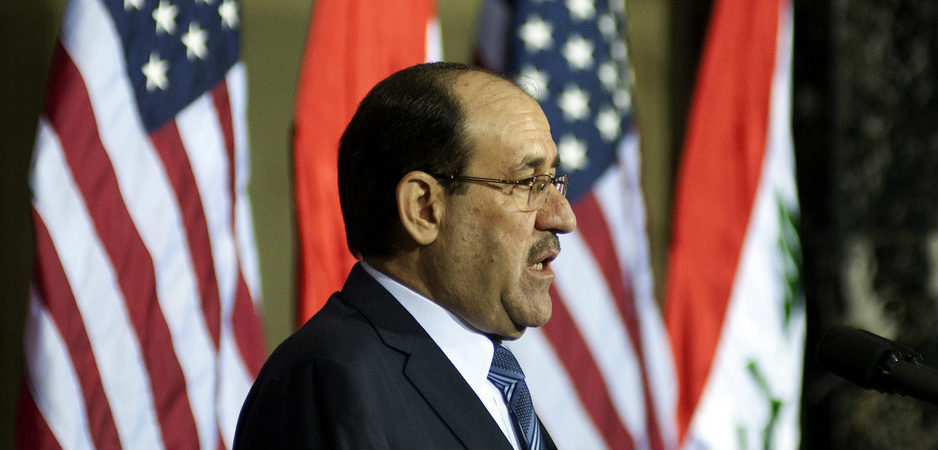

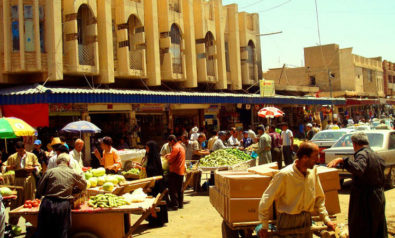
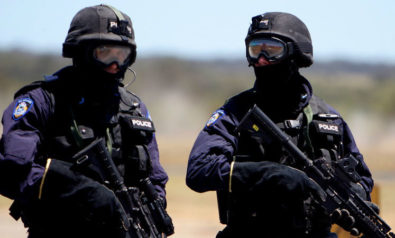

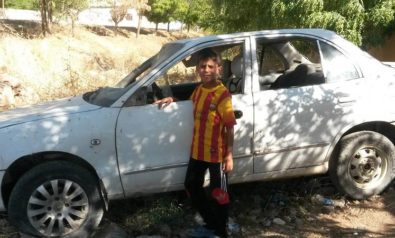
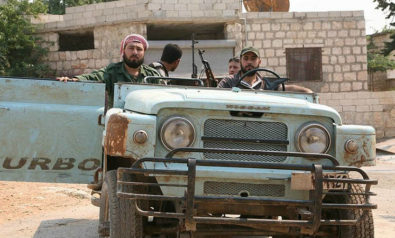
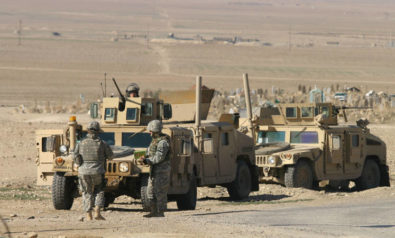
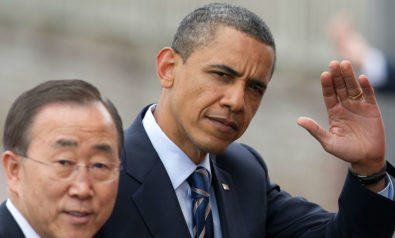

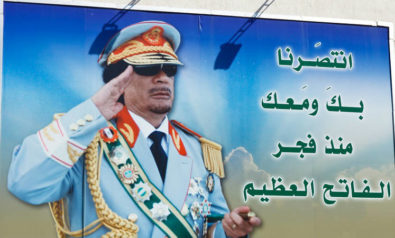


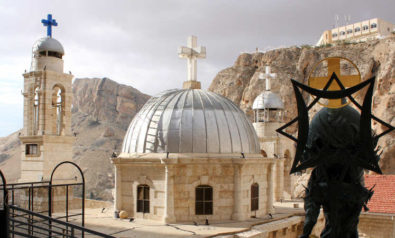


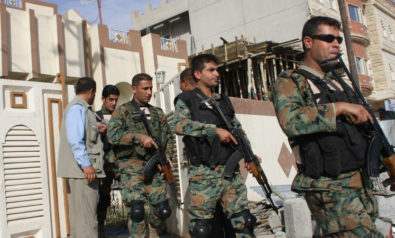

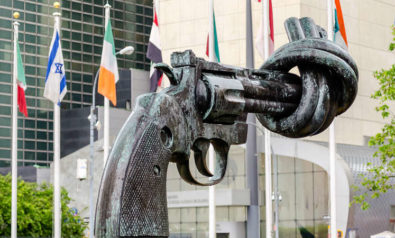

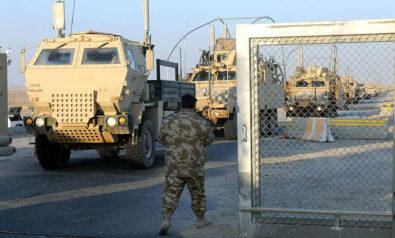




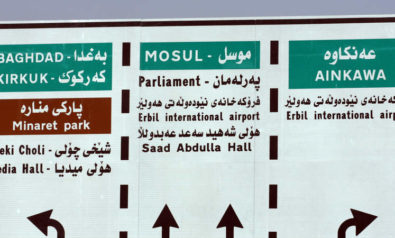
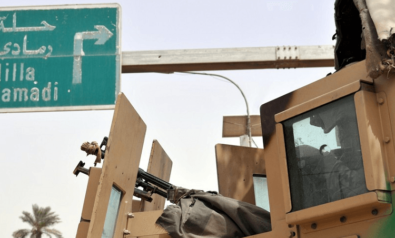


Dr David Hill
July 3, 2014
What we are witnessing should be a warning to the West and where dire inequality drives terrorism to emerge. The growth in extremism has not decreased but it has been fanned by the Iraq, Libyan, Egyptian, Syrian and Afghan wars and where we should have kept out of all of them. But as we know, our politicians never listen and now we have to suffer a far more dangerous and unpredictable world. Now we have the enemy from within and something far harder to defend against even if we ever can. For any army general will tell you that internal terrorism is the unseen war which goes on indefinitely. Indeed the history of the world has shown that so-called terrorists in one time period eventually become the future leaders. That should send shivers down everyone's spine as history tells us this when people start to rise up against dire inequality - exactly where we have arrived at now and where according to Credit Suisse's 'Global Wealth Report' 2013 the top 10% of the world's population controls 86% of the world's total wealth, leaving a mere 14% of the world's wealth to the remaining 90% of the world's population. Blame the politicians and the mighty corporation for this state of affairs and where they are hand in glove with this insidious global state of affairs that will cause wars and conflict on an unprecedented scale. Unfortunately the more martyrs that are made increasing numbers are created to continue to the very end as history again has recorded. Therefore trying to defeat this monster with a heavy hammer approach, creates the opposite effect as history again has shown.